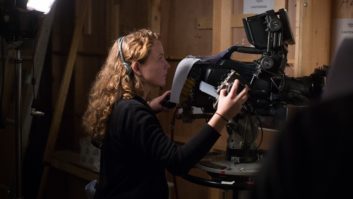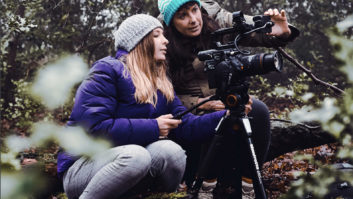The National Association of TV Program Executives (NATPE), which was founded in 1964 after 71 people met to debate industry issues in New York, saw its membership jump from 210 in 1970, to 3800 by 2000, and it has now risen above 5,000 as an astonishing number of the top executives focussing on producing, selling and buying content have co-operated more closely under its banner.
For example, its chairman is Andy Kaplan, former president of Worldwide Networks at Sony Pictures Television.
The well-oiled machine of international production hits Budapest’s Intercontinental Hotel on 25-27th June with NATPE combining screenings, a market place, and key sessions that include an international acquisition summit, a buyer’s briefing for producers, a data for buyer’s look at consumer consumption trends, a drama forum for executives and creators, a MENA region overview, a look at how all the world has become a streaming experience, plus a ‘pitch and play’ competition.
A local market that has attracted 28 world regions
Stating that delegates from more than 70 nations will attend, NATPE president and CEO JP Bommel first explains why NATPE CEE returned to Prague (its original venue) after a three year stint in Prague.
“Budapest is a bit of a capital of media with studios producing big productions, and we needed to be centrally located in the CEE region. We wanted to extend our reach, and the premise of the show was to focus on two things,” he says. “First is access to global series mainly from the Americas. We have all the big US studios coming to present their series, in what will be a mini version of the NATPE LA screenings, with some commonalties with our NATPE Miami event. Second will be a platform for looking at local content from the CEE region, which has taken on fire as local content is exposed to international buyers.”
The event is called NATPE Budapest International for good reason. “We will have maybe 525 buyers, and the world has taken notice in the form of many nations beyond the region,” says Bommel.
“The UK is now very prominent in both selling and acquiring content, and in have come TV media companies from China and India as well, and we have expanded into the MENA region (North Africa) too,” he adds. “This was a local market that became global, with a lot of international co-production discussion at core. It will be a vibrant and interesting show, especially in this time of rapid evolution in the content business with OTT and streaming so dominant.”
Budapest will be for producers, sellers and buyers numbering collectively 1,300.
“Linear TV is still very big as a component, but it is the rise of OTT worldwide that is creating the demand for more and more content,” says Bommel. “That is really why the show is growing, and the executives that we bring to the show are the people who matter, but if you are a young producer or a production company with just two or three shows, we make sure that you get to meet the people you need to see as well. That is very important to us.”
NATPE Budapest will have daily video networking events as well, and it runs the NATPE Connect service to make sure smaller and news players get to meet the right people.
The big deal is finding the right partners
The heady cocktail of content business deals and connectivity is matched to a conference that has zoomed in terms of executive value. As a dating agency, what do delegates want NATPE to focus on?
“The main component is that focus on international co-production. Even the BBC does not pick up 100 per cent of the budget. The strategy is that all the large producers look for partners to work with, because every hour of content costs a lot of money,” says Bommel. “Spreading the costs is one thing, but when you partner with corporations like Netflix or Amazon it also gives you the crucial international distribution. We will provide that insight, and take the discussion to the stage.”
Around 10 Chinese companies interested in acquisition and international co-production will have a pavilion, and will be hosted at a special luncheon event. Some 28 or 29 geographical territories will be represented in Budapest, and they will also hear discussions about the huge rise in what we call unscripted TV and the US calls reality TV.
“We see the trend, and we support it 100 per cent. All the major networks are doing reality things like docs on crime series,” says Bommel. “But finding the right partners to finance your show is the real big deal.
“A lot of producers are very much involved with the distribution companies in the sense that they work together on crafting shows and series, to make sure they have an international component. Everyone has become closer partners.”






